#presidential citizens medal
Text
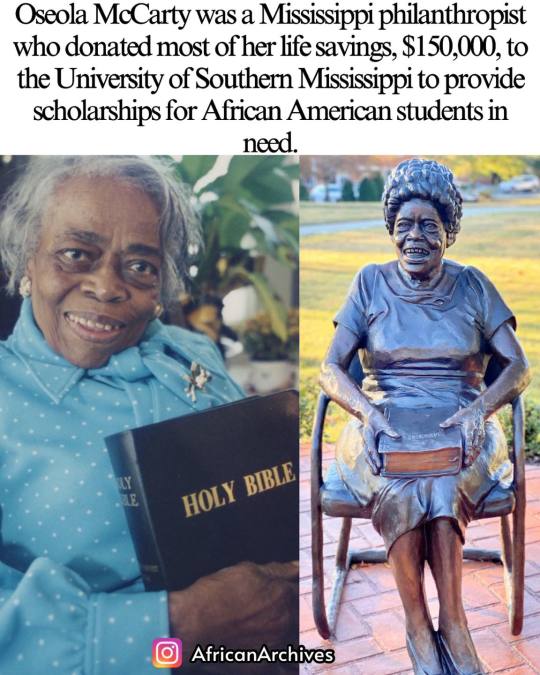
McCarty was born on March 7, 1908, in Shubuta, Mississippi. She was raised in nearby Hattiesburg by her aunt and grandmother. McCarty, who never married and had no children, lived frugally in a house without air conditioning. She never had a car or learned to drive, so she walked everywhere, including the grocery store that was one mile from her home.
When she was 8 years old, McCarty opened a savings account at a bank in Hattiesburg and began depositing the coins she earned from her laundry work. She would eventually open accounts in several local banks. By the time McCarty retired at age 86, her hands crippled by arthritis, she had saved $280,000. She set aside a pension for herself to live on, a donation to her church, and small inheritances for three of her relatives. The remainder—$150,000—she donated to the University of Southern Mississippi, a school that had remained all-white until the 1960s. McCarty stipulated that her gift be used for scholarships for Black students from southern Mississippi who otherwise would not be able to enroll in college due to financial hardship. Business leaders in Hattiesburg matched her bequest and hundreds of additional donations poured in from around the country, bringing the total endowment to nearly half a million dollars.
The first beneficiary of McCarty’s largesse was Stephanie Bullock, an 18-year-old honors student from Hattiesburg, who received a $1,000 scholarship. Bullock subsequently visited McCarty regularly and drove her around town on errands.
In 1998 the University awarded McCarty an honorary degree. She received an honorary doctorate from Harvard University, and President Bill Clinton awarded her the Presidential Citizens Medal.
McCarty died of liver cancer on September 26, 1999, at the age of 91. In 2019 McCarty’s home was moved to Hattiesburg’s Sixth Street Museum District and turned into a museum.
x
#oseola mccarty#philanthropist#university of southern mississippi#scholarship#black students#financial hardship#hattiesburg#mississippi#honorary degree#harvard university#presidential citizens medal#sixth street museum district#women's history month#history#black history
340 notes
·
View notes
Link
Earlier this week, Trump renewed attacks on Freeman, whom he accused of lying to the Jan. 6 Committee after the complete transcript of her interview with the panel was made public.
"What will the Great State of Georgia do with the Ruby Freeman MESS?" Trump said on his social media platform, Truth Social.
Von DuBose, a lawyer representing Freeman and Moss in a defamation lawsuit against Trump attorney Rudy Giuliani, said Trump "continues to threaten their safety."
#ruby freeman#shaye moss#presidential citizens medal#fulton county#georgia#brad raffensperger#the big lie#donald trump#rudy giuliani#abc news#lucien bruggeman#election workers#poll workers
9 notes
·
View notes
Note
Are you aware that hamas kidnapped a baby? Google the name kfir bibas. You deranged maniac.
wow you just stopped yet another non US citizen from voting for hamas in the US presidential election 🙏🙏 google "palestinian children death toll" to find out more and claim your joe biden gold medal
6K notes
·
View notes
Text
Gaslight, Chapter 48/48: Epilogue
Rated X | Read it here on AO3
May 29, 2001
Tonight we bring you an update on the conspiracy that continues to rock the States. Ten months after exposing the major players behind the now defunct Spurious Project, three men identified only as “The Lone Gunmen” were awarded the Presidential Medal of Freedom, with one of the three men being awarded the medal with distinction due to injuries sustained during an attempted assassination by Spurious operatives.
As millions of Americans continue to line up to have microchips containing false memories of a global pandemic removed from their necks, the search continues for the individuals at the heart of the project: identified only as ‘subject 101-1’ and ‘subject 101-2.’ While their precise role in the project remains unclear, sources state that they should be considered victims.
The Spurious Project is purported to be the largest and most well-orchestrated attempt to mislead the public in recorded history. Any Canadian citizen who visited the States between February and March of 2000, or who received a vaccination for the Manatua Virus, should see their doctor as soon as possible to be scanned for a microchip and have it removed if necessary.
There’s a knock at the door, and Frenchie barks sharply as she skitters across the hardwood. Scully turns the TV off before hoisting herself out of her armchair, fruitlessly attempting to quiet Frenchie with verbal commands. Halfway to the door there’s another knock, and she calls out, “Just a minute!” as she shuffles the rest of the way, already out of breath. On the other side she finds a little boy with messy blonde hair and an RC car hanging from his fingertips, the remote tucked under his arm.
“Can Zack play?” the boy asks without preamble.
“Sure,” Scully huffs, then turns to shout down the hallway. “Bear! Micah’s here!”
A moment later Peter trudges down the hall, his own RC car in hand. Scully grabs him by the back of his shirt collar as he prepares to wordlessly walk out the door, and he stops and tips his face up to look at her. His body has softened in the intervening months, rounding out his face and padding his hips beneath his sweatpants.
“Watch for the car please, okay? Daddy and Bunny will be back from the airport soon.”
Peter nods, and she takes his chin in her hand and kisses his forehead before sending him outside. She watches him walk shoulder-to-shoulder across the lawn beside Micah and tells herself that he’s a typical little boy. One who is fiercely independent because he subconsciously doesn’t expect the adults in his life to meet his needs. One who struggles to stop eating when he’s full because his body remembers a time when his next meal wasn’t guaranteed. One who hoards everything from Q-tips to granola bars in his room, just in case. But he fits right in with the kids in the neighborhood, and is excited to start kindergarten in the fall. Typical, considering all he’s been through, and she’s grateful for it.
The oven timer beeps and she makes her way to the kitchen, the warm vanilla smell in the air making her mouth water. It’s just a boxed cake, nothing fancy, but she feels emotional as she sets it on top of the oven to cool and gets out supplies for decorating.
Her life now would be completely unrecognizable to the person she was a year ago, a fact that both relieves and saddens her. As difficult as that time was, it wasn’t all bad. There were happy memories made, and there are people she still misses, as well as places. But the home they’ve made here is a permanent one, both for the sake of the children who have enough to contend with without another international move, and because the risk of returning to the States is simply not one they are willing to take.
She hears the crunch of tires on gravel and her belly does a nervous little flip, which strikes her as silly. She can’t decide whether to meet them on the front porch, or in the driveway, or maybe just stay here in the kitchen. She’s still pondering this when the screen on the back door snaps and Abby walks in, eyeing Scully curiously as she examines the sweet-smelling cake.
“Are you okay, Mommy?” Abby asks, and Scully forces herself to smile.
“Yeah, sweetpea, I’m just a little nervous,” she says, reaching out to run her hand through the child’s short-cropped hair, now devoid of blonde. Abby tenses reflexively at her touch, but Scully ignores it. “Did you have fun going to the airport with Daddy?”
Abby nods, watching Scully’s face. She’s always watching her, measuring her mood and anticipating her reactions. The casual observer would deduce that they’re incredibly close, based on the way Abby never lets Scully out of her sight, but the truth is much more complicated than that. Abby can’t relax unless she knows that Scully is relaxed. She cannot feel safe in a place where Scully is present unless she has taken steps to prophylactically placate her. The outside world sees a little girl who dotes on her mother, but Scully sees a little girl who perceives her mother as a potential threat that she must constantly monitor. It gets better week over week, month over month, and Scully has faith that someday Abby won’t flinch when she reaches for her.
“Oh my god.”
Scully turns away from Abby and towards the sound of her mother’s voice. She’s standing in the doorway of the kitchen, her hands held over her mouth and her eyes shining.
“Mom,” Scully says, rushing towards her, tears already pooling in her eyes.
They embrace awkwardly, both laughing, and just the smell of her mother’s skin, her laundry soap, her shampoo, makes Scully feel like a little girl again. She wishes she could crawl into Maggie’s lap and tell her how hard it’s been, and how much she’s needed her.
“Look at you,” Maggie says, leaning away and laying a palm on the tight drum of Scully’s stomach. “You look beautiful.”
Scully laughs uncomfortably. “I feel like a whale,” she says. “Sorry I didn’t come to the airport. I can’t sit down for more than twenty minutes without my sciatica acting up.”
“It’s okay,” Maggie says, beaming as she looks between Scully’s belly and her face. “I’m just glad I was finally able to come see you.”
“How long are you staying, Maggie?” Mulder asks as he lumbers in with a bag in each hand as well as one under each arm. “I think you packed for the apocalypse.”
“Oh, half of that is gifts for the kids,” Maggie says, taking two of the bags. “I have a lot of missed spoiling to make up for.”
-
After dinner, Scully brings out the carefully decorated cake and sets it on the table. The mood shifts to something somber as she props up the only two photos they have of Cal against the cake stand: the one of the four of them that Maggie gave her that first day when she woke up in the hospital in Baltimore, as well as the ID Byers had created when they thought Cal would be traveling with them to Canada. She’d secreted them across the border in her luggage against Tom’s direction, unwilling to risk the children forgetting him completely, which she is now exceedingly grateful for.
“Happy Birthday in Heaven, Daddy,” Abby says as Scully lights the lone candle.
They sing a low-energy rendition of the birthday song, and the kids blow the candle out together. Their memories of Cal are hazy and don’t feel nearly as significant to them as they do to Scully, but she is steadfastly committed to ensuring that they never forget how much he loved them, all three of them, and that he is remembered for the good he did in this world.
Scully does the dishes, smiling to herself as she listens to Maggie quiz the children on their lives in the next room. Despite losing their implanted memories of their grandmother, both Abby and Peter seem very comfortable with her, which is a relief. She hears Mulder’s feet on the linoleum before he steps up behind her, running his hands in wide circles over the sides of her belly.
“Seems like everyone’s getting along,” he says, resting his chin on the crown of her head.
She feels a flash of foolishness remembering how she cried to him the night before, terrified that the children would receive her mother as a stranger, or that celebrating Cal’s birthday would trigger one of Abby’s flashbacks, or a myriad of other things that would create tension and stress so close to the baby’s impending arrival. Pregnancy has made her feel like an imposter in her own body, betrayed by her unpredictable emotions, and Mulder has been exceedingly patient and supportive with both her and the kids as they adjust to their new circumstances.
There are still holes in the patchwork of his memory, some pinpricks and some gaping. He’s himself, but a slightly less restless version than she knew before their lives were stolen from them and returned in increments. Still searching and endlessly curious, but not quite so tortured by the unanswerable questions as he once was. Still busy and preoccupied, but not to the degree that he can’t set his current fixation aside and be present with his new family. It’s difficult to say whether the change in him is due to how completely his life has been turned upside down in less than a year, or if maybe some of the memories he never recovered were the ones that haunted him the most. Regardless of the reason, she’s been pleasantly surprised by how easily he’s fallen into the roles of husband and father.
He bends down a little, hooking his chin over her shoulder and slipping his hands under the water alongside hers. Scully smiles and glances toward the living room, then pushes her backside against him to the greatest degree that she’s able, given her belly and the obstruction of the countertop.
“Are you trying to start something, Mrs. Manningham?” he asks playfully.
Scully tilts her head to the side and Mulder kisses her neck.
“At first I thought it was infatuation,” he sings quietly, brushing his lips across her skin. “But oooo it’s lasted so long. Now I find myself wanting to marry you and take you home.”
Scully closes her eyes and sways back and forth, feeling so happy it almost hurts. Then the tears come, as they are wont to do, running down her chin and leaving wet splotches on the gray cotton T-shirt stretched over her belly. Mulder doesn’t ask her what’s wrong or make a fuss over it, he just dries his hands and then her cheeks, then kisses her and tells her to go visit with her mom while he finishes in the kitchen.
By the time the kitchen is cleaned up and the children are in bed, Scully is too exhausted to socialize any further, and she excuses herself to take a bath while Mulder and Maggie share a bottle of wine. In the tub, she wets a washcloth and lays it over her belly for warmth, more relaxed than she can remember feeling in quite some time. She hears her mother laugh from the living room and she smiles and closes her eyes. She must have started to drift, because her belly is suddenly cold and Mulder is crouched beside the tub, brushing his index finger down the bridge of her nose.
“I thought we agreed to no sleeping in the bath,” he admonishes her lightly, the sour smell of wine on his breath.
“I wasn’t sleeping,” she mumbles, sitting up and taking his hand as he helps her out of the tub.
They both get ready for bed and he curls himself around her beneath the covers, one hand resting on her belly.
“How do you feel?” he asks quietly.
“Hmmm, tired,” she says on a yawn, hoping he takes the hint.
“I mean emotionally. Having your mom here, Cal’s birthday. You holding up okay?”
With great effort she rolls to her back, her belly protruding towards the ceiling like a mountain summit. The baby squirms, jabbing her rib cage uncomfortably, and she grabs Mulder’s hand to lay it over the place where he might be able to feel movement.
“I’m really good, actually,” she says. “It feels like…closure, maybe. Or something similar to that. Like we can finally start moving forward.”
Mulder nods, giving her three quick kisses before she rolls back to her side. She falls asleep quickly, no longer afraid that someone is about to break the door down and take away everything that matters. No longer feeling like her life is not her own.
She dreams that dream again, the one with the green countertops and Mulder spinning her around in his kitchen. The one of a love so strong that neither man nor science could destroy it. The one that she simply wouldn’t forget, no matter how hard they tried to make her.
Tagging @today-in-fic
#the x files#x files fanfic#txf#dana scully#fox mulder#xf fanfic#x files#the x-files#xfiles#thexfiles
62 notes
·
View notes
Text

I stand as firmly against Genocide as I do Antisemitism and Islamophobia. I understand the desire for a safe place for Jewish people to exist in this world. …But I, for the life of me, can't see the justification of the IDF and the state of Israel's actions against the indigenous Palestinian people for the last 75+ years. Humanity has seen apartheid states born of settler colonialism before, and Israel is just such a state. I am a citizen of a county that was founded with labor born from the horrors of chattel slavery on land stolen from the indigenous people who lived here for centuries. The city in which I live has a shameful history with lynching black people. I do not take for granted the history of the land and people who existed here before me. It informs how I view all the aspects of injustice.
There are a lot of calls for condemnation of the actions of Hamas on October 7, 2023. I can understand the immediate response. What I wonder is, given the context of those acts, however despicable or violent, they may be in the narrative of this time. How will Hamas be viewed in 50 to 100 years from now? I can't help but think about all the same condemnations for people like Nat Turner, Gabriel Prosser, Denmark Vesey, Toussaint Louverture and others like them who all lead sometimes violent rebellions of resistance during their times of oppression. While they were condemned by society at large, especially by those in power, there were certainly a minority of people of that time period that were empathetic to the motivations for said violent actions.
In a more recent time, I think of Nelson Mandela, who was the leader of the ANC and at one point abandoned his nonviolent philosophy to resistance and embraced the ideas of violent resistance. He even spent time training in guerrilla warfare tactics. He is another more modern example of someone once condemned, specifically by US president Ronald Reagan and British prime minister Margaret Thatcher, who both considered Mandela and the ANC a terrorist organization. Yet today, he is widely considered a “hero of liberation” and was awarded over 260 awards, including the Nobel Peace Prize in 1993 and the Presidential Medal of Freedom in 2002.
The violence of humans isn't an easy thing to face, which makes it very hard to understand. I don't know exactly how history will look back on this time period and the actions of Hamas or the oppressive state power in which they are resisting, but considering how other similar acts once considered terrorism are now hailed as heroic, I think it's worth thinking about.
I want my grandchildren to know that today December 11, 2023, I do not think violence should ever be the first course of action but that I understand that acts of violence are often considered justified after time has passed and power structures have evolved. I want them to know that I participated, to the best of my ability, in the global strike, calling for a ceasefire in Palestine. I want them to know that my heart feels broken for the extreme loss of innocent Palestinian lives, over 18,000, many of which were children, which has taken place in the last several weeks. I want them to know I support the freedom of Palestine and safety for people of the Jewish faith to exist in all societies. I do not believe the two are mutually exclusive. The Jewish people are not the government of Israel anymore than I am the government of the United States, which is complicit and financially supportive of the Genocide taking place in Palestine.
Christmas is canceled in Bethlehem’s churches this year because of the ongoing Genocide. While I am not a practicing Christian, I was raised in the faith and maintain a cultural connection to the holiday. Celebration feels hollow, so this Christmas, I will be grieving.
7 notes
·
View notes
Text
On April 2, 1942, a group of nine CA State Library employees of Japanese ancestry (pictured below) was dismissed by the Personnel Board. Today, Jan. 30, we celebrate Fred Korematsu Day of Civil Liberties and the Constitution. How are these facts related? Let's return to a tumultuous time in history.
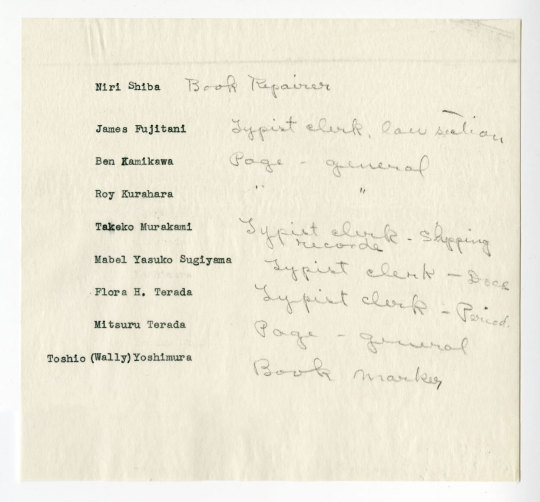
First, why were these employees dismissed? Due to the repercussions of Executive Order 9066, issued by President Roosevelt on Feb. 19, 1942. The order allowed the gov't to incarcerate thousands of citizens and legal residents based on nothing but their Japanese ancestry.
Where does Fred Korematsu come in? Mr. Korematsu was an American civil rights activist who stood up to the U.S. government’s wrongful incarceration of over 120,000 people of Japanese ancestry living on the West Coast during World War II.

Even without support from his family or community, he disobeyed the government’s orders, and as a result, spent over two years in various prisons and wartime incarceration sites. His case went to the Supreme Court, and in 1944 the Court ruled against him, claiming the mass incarceration was a “military necessity.” Nearly 40 years later, the gov't finally issued apologies and reparations to camp survivors, and in 1998 President Clinton awarded Mr. Korematsu the Presidential Medal of Freedom.

In the same year (1998), California launched the CA Civil Liberties Public Education Program. The program, managed by the CA State Library, funds projects that educate the public about civil liberties injustices carried out based on an individual or group’s race, national origin, immigration status, religion, gender, or sexual orientation (including, but not limited to, the internment of Japanese Americans during World War II).
400+ projects have been funded since the program’s birth, including video/audio broadcasts, books, graphic novels, photo collections and exhibits, museum displays, arts performances, material preservation, educational guides, websites, public art and monuments, and more.
New rounds of funding become available each year, and project submissions for this year are open until April 14, 2023. To learn more about the program, visit library.ca.gov/grants/civil-liberties.
#Korematsu#Fred Korematsu#fred korematsu day#Fred Korematsu Day of Civil Liberties#Japanese Internment#History#California#California History#Library#Education
40 notes
·
View notes
Text
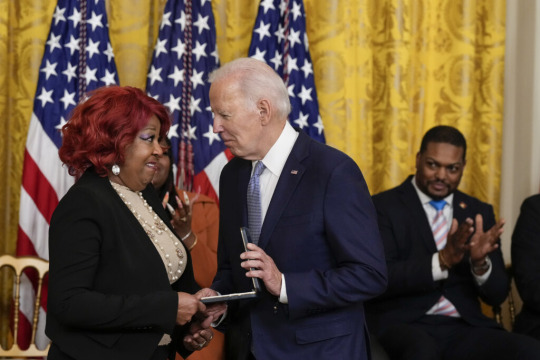
President Joe Biden awarding the Presidential Citizens’ Medal to Lady Ruby Freeman - January 6, 2023
32 notes
·
View notes
Text
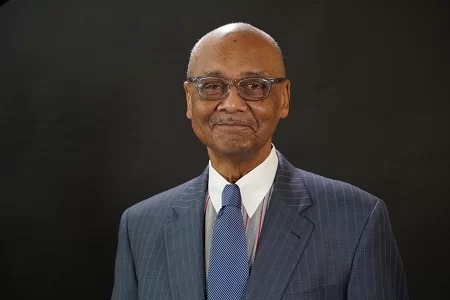
Robert L. Woodson Sr. (born April 8, 1937) in South Philadelphia is described as the “godfather” of the movement to empower community-based organizations to help themselves. He rose from liberal-oriented neighborhood civil rights activism in the 1960s to coordinating national community development programs in the 1970s.
He headed the National Urban League’s Administration of Justice Division, the Neighborhood Revitalization Project, and had a fellowship with the American Enterprise Institute. He founded the National Center for Neighborhood Enterprise. The name was shortened to Center for Neighborhood Enterprise and he serves as its president. The program have helped more than two thousand six hundred community groups in thirty-nine states. CNE’s approach reduced gang wars and increased opportunities for resident ownership of former public housing units.
Independent evaluations credited these initiatives with significant reductions in school absences, incidents of violence, and police arrests. He has advised the 104th Congress, the Pennsylvania Legislature, and the Wisconsin Assembly on poverty and welfare reform.
One of five children, determined not to join a gang, he dropped out of high school and joined the Air Force. He earned his GED and enrolled in Cheyney State University, where he graduated with a BS in Mathematics. He earned an MSW from the University of Pennsylvania and holds honorary doctorates from Colorado Christian University and the University of Cincinnati. He has received a John D. and Catherine T. MacArthur “Genius” Fellowship and the Lynde and Harry Bradley Foundation Prize. He was awarded the Presidential Citizens Medal.
He has authored hundreds of articles on poverty and empowerment as well as several books, including A Summons to Life: Mediating Structures and the Prevention of Youth Crime. He sits on the boards of the American Association of Enterprise Zones, the Commission on National and Community Service, and the Commonwealth Foundation. He married Ellen (1977) and they have four children. #africanhistory365 #africanexcellence
2 notes
·
View notes
Photo
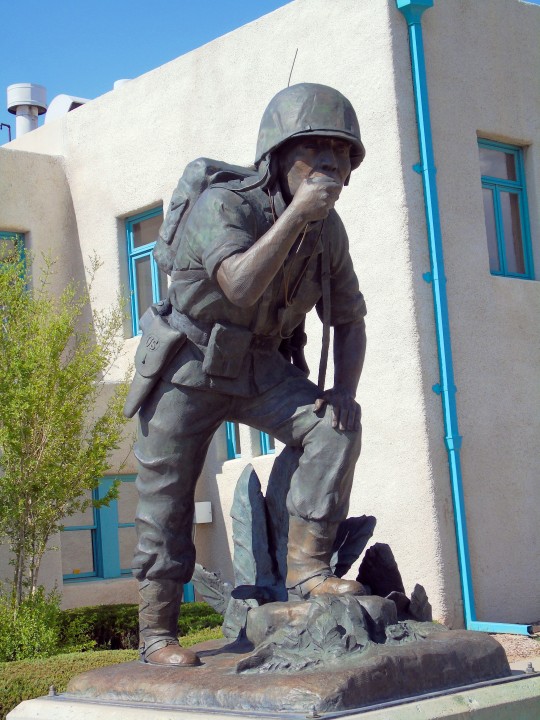
National Navajo Code Talkers Day
Navajo Code Talkers Day, celebrated every year on August 14, is a day that holds great importance in the history of the U.S. This is because the day recognizes the contributions of Native American soldiers during World War II. Yes, Native American soldiers encoded and transmitted messages using a complex Navajo language-based code during a time when secret communication was essential to win a war. And guess what? The code was never broken by Japanese forces in the Pacific and proved to be of great assistance to the U.S. Marines. On this day, celebrate the great American heroes and their service to the nation!
History of Navajo Code Talkers Day
The C.I.A.’s official site has stated that Navajo was a near ‘perfect’ language that was used to create military codes. This is why it has been recorded in history and is recognized for its brilliance even today. However, the code wasn’t the language itself but was a communication form that was encrypted using the Navajo language. Since many people couldn’t decipher it, the code remained unbreakable throughout the war. It is this success of the code that is celebrated by Americans every year. National Navajo Code Talkers Day was made a legal state holiday in 2020 by Governor Doug Ducey who signed legislation to honor the courage of the Navajo Code Talkers and their critical role in the WWII victory. According to him, the Navajo Code Talkers are “American heroes.”
It all started in 1942 when the U.S. was fighting World War II in the Pacific and needed an unbreakable code to ensure the success of military operations. During this time, Philip Johnston, the son of a missionary who had grown up in the Navajo Nation, suggested a code be created using the Navajo language. After this, there was no turning back and the U.S. government recruited over 400 Navajo men to serve during the war. The Navajo Code Talkers successfully transmitted more than 800 messages without error and helped the U.S. win the war. Hence, in 1982, Navajo Code Talkers Day was established through a presidential proclamation by President Ronald Reagan In 2014, Arizona passed legislation declaring every August 14 Navajo Code Talkers Day in Arizona.
Here’s a little more on one of the Navajo Code creators Samuel Billison. The man enlisted in the United States Marine Corps in 1943 and was a popular code talker. He also served as president of the Navajo Code Talkers Association.
Navajo Code Talkers Day timeline
1942 Top Secret
Philip Johnston, a World War I veteran, discovers that the military is experimenting with codes.
1968 Round of Applause
The Navajo Code Talkers receive the first public recognition at the 4th Marine Division reunion.
1992 The Special Honor
The Navajo Code Talkers are honored at the Pentagon.
2001 The Gold
President George W. Bush presents the 29 original Navajo Code Talkers with the Congressional Gold Medal.
How to Observe Navajo Code Talkers Day
Create a code of your own
Watch a documentary on WWII
Read up on the Navajo Code
To have some fun and also realize how tough it is to develop an unbreakable code, try to make one of your own and use it with your friends.
To find out more about the war and why the efforts of each and every citizen are still applauded, watch a historic documentary.
What is the Navajo Code? How was it created and what were the words used?You can find out everything you need to know with just a little research.
5 Interesting Facts You Need To Know About The Navajo Code
Never broken
Terms created
The code
First deployment
Another Navajo cannot decipher the code
It’s the only oral code in history that has never been broken.
The original twenty-nine men created 211 terms.
Navajo bird names were used and applied to weapons of war.
The Navajo Code Talkers were first deployed to the Battle of Guadalcanal.
Deciphering the code is not possible unless the Navajo is a code talker.
Why Navajo Code Talkers Day is Important
It promotes the Navajo heritage
It recognizes the efforts of the soldiers
It keeps history alive
The day is important since it promotes Navajo heritage, and also explains how different cultures and languages can prove to be beneficial in times of need.
During the war, the efforts of every soldier were essential for the survival of the state. This day recognizes the bravery and intelligence that was used to create the unbreakable Navajo code.
The day keeps alive the history of the war and the efforts of several communities who aided the United States in reaching success.
Source
#National Navajo Code Talkers Day#Navajo Code Talker#Gallup#New Mexico#summer 2014#sculpture#public art#Native American history#vacation#USA#travel#original photography#tourist attraction#landmark#cityscape#Southwestern USA#14 August#NationalNavajoCodeTalkersDay#WWII#World War Two#World War II
7 notes
·
View notes
Text
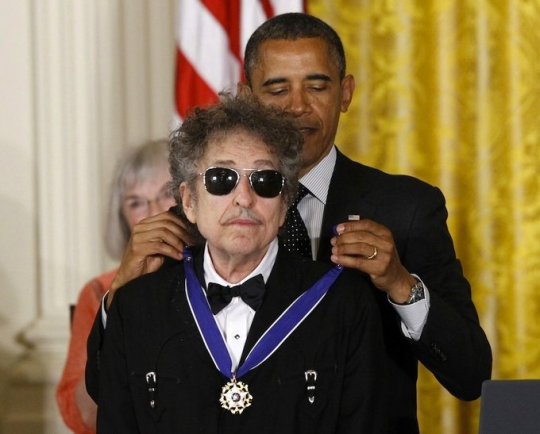
april 27, 2012
Bob Dylan receives the Presidential Medal of Freedom, the highest honor awarded to a United States civilian citizen, from US President Barack Obama. Dylan is only the 29th musician to receive the award; previous recipients include Frank Sinatra, Aretha Franklin, and Irving Berlin.
13 notes
·
View notes
Text
3 Years Of Presidency - The Interview
On the third anniversary of the inauguration of President of Ukraine Volodymyr Zelenskyy, ICTV hosts Vadym Karpyak and Olena Frolyak interviewed the head of state and First Lady Olena Zelenska. For the first time since the start of a full-scale war.
These two interviewed them since they did the interview three years ago.
Personal note: I tried my best with the translation but can't guarantee that it is 100% correct. Since the interview was about an hour, I summarized what they said about certain topics. Again: I tried my best but can't guarantee I summarized it correctly.
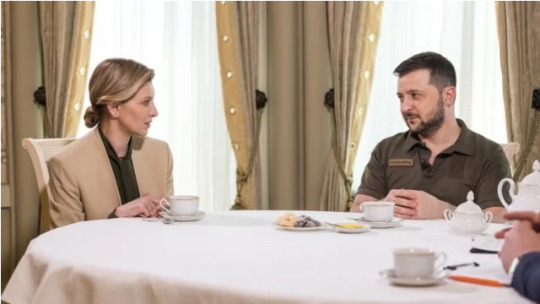
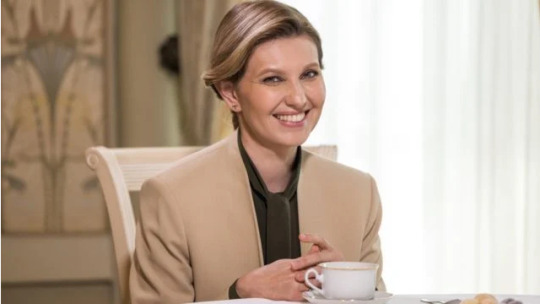
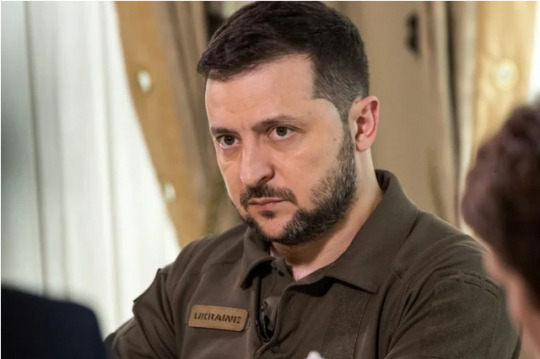


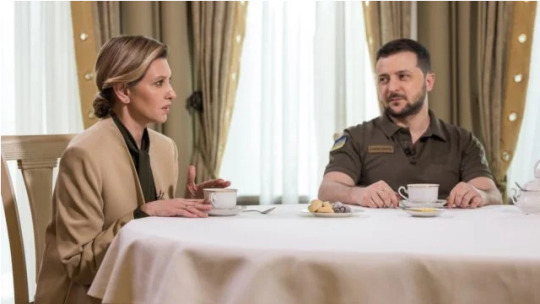
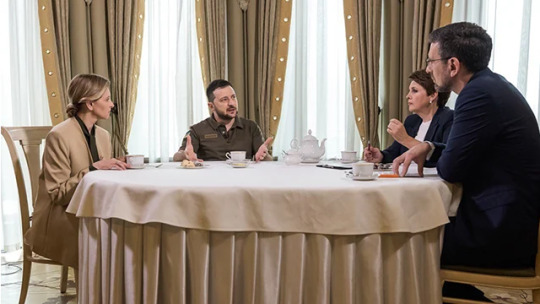
About the interview three years ago.
three years ago, they met when Zelenskyy was a presidential candidate, three months in politics
back then, Zelenskyy said (asked about how he was doing in these three months): He learned that people are not what he thought they were & he started to value his family more
Zelenkyy doesn't remember these answers; the interviews say they do, and Zelenskyy jokes that "Television remembers everything"
About three years of presidency.
the interviewer mentions that Zelenskyy is the "Man Of The Year" in TIME magazine
the interviewer wants to know what Zelenskyy's experience was after three years in Ukrainian and world politics
Zelenskyy says that his values haven't changed
he admits that three years ago, he had no political or diplomatic experience, but today he understands where Ukraine belongs (and his role and job)
world politics is, for him, a place where Ukraine belongs → he truly fights for it with the Ukrainians and the army (everyone)
the war is not only a fight for territory or the whole land but also for a place in the world
they don't want to be a part of another country (an empire) because Ukraine isn't an empire → Ukraine is their own state/country and different; for example, in mentality → they don't want to be an empire, even if given a chance, because that's not who Ukraine / Ukrainians are → they are normal; they want peace, tranquillity, everyone at home & the same table → therefore, the most important thing is the place of the state
Zelenskyy says it's about diplomacy
he thinks that Ukraine's place is among equals → manifested in the European Union in various defence unions, alliances or among the guarantors of security → these will be the result of consistent policy
he's seeing these goals / this path beside the war
as a result of this policy, he gets titles like "Man Of The Year", streets/squares are named after him, and he gets medals / awards / ... → but: he doesn't think these things are about him; these things are about the Ukrainians / they are addresses to the Ukrainians / all the people who defend the state and protecting the country
he emphasizes the difference between "society" and "citizens": Ukrainians are a society; a citizen is someone who is changing their passport
he stops himself after that comment, realizing that this was not the question of the interviewer; he says "Sorry" for answering so long → admitting that this is probably also something that has changed: the length of his answers and answers, in general, have probably changed too (interviewer agrees on this)
Zelenskyy continues that many things have changed: he started to enjoy the moment - like this moment: them sitting together, with his wife next to him, a de-occupied Kyiv region, Donbas not taken
he mentions the difference in enjoying things: ordinary things that are important to him as a person and things that are important to him as a president
he's trying to get the most (positivity) out of everything - like satisfaction with the positive result of the state → he explains that he focuses on the good things because he has too → because he can't get pleasure from a blocked region/city or that people died or have to suffer,... → hence why he decided to live today (in the moment) and trying to have a positive look on things → it's something he started over the past three years after beginning to see the small things a little worse; he also began to really see the big things for the first time
Olena about not being happy that her husband would run for president and three years of the presidency for her.
she was against it because she knew that the family and both of them would face enormous challenges; they would have to fight to live (their lives)
she wanted peace for her family and both of them, hence why she didn't want these fights and challenges → but: Olena knew that he could stand his ground, and they would make it; it just would be tough → and it was indeed not easy
Olena mentioned that no one knew three years ago that the worst was yet to come
Olena about the war and her family / Zelenskyy, what has changed and their communication while she and the kids were hiding.
she says that (for her) nothing has changed, especially when it comes to her husband: he was always a reliable man, and he stayed like this; his character traits haven't changed, also not his general opinions/point of views
the family is, like all Ukrainian families, separated/divided
the interviewer mentions that "your husband was taken away by the war", to which Olena responds with a smile that "Nobody will take my husband away, not even war."
she says that he still "lives at work" (Bankova); the family hardly sees him right now
before her return, they haven't seen each other for 2 1/2 months
they were able to talk on the phone while they had to hide
after her return, she and Zelenskyy had several opportunities to meet, but not that many / they are rare → hence why Olena is grateful for his interview because to her, it means they're able to spend time together (Zelenskyy jokingly adds, "Dating on air.", Olena laughs about the joke and agrees)
she doesn't think that the family has changed a lot but thinks that maybe she has changed (she looks at Zelenskyy after that, and he replies, "You look beautiful.")
Olena says that they are holding on, everything is fine (as fine as it can be right now), and the family is still the same → kind of; because they don't have a normal family life yet, like sitting down, having dinner together or talking about all kind of things
Olena (and Zelenskyy) says that they would call each other in the evening and talk about what they would have for dinner, talk about that (Olena calls it "Dinner by the phone"), they would make jokes about the dinner situation or them eating / the food,...
Olena says that right now, they, like every Ukrainian family, are waiting to be reunited
About what Zelenskyy is most proud of after three years of presidency.
Zelenskyy says that he's most proud of the fact that Ukrainians are always respected (not only during wartime)
he always believed in the Ukrainian people
the war and the strength and union of the people are not just proof of his words or his confidence in the people, but also proof to the whole world that Ukraine has such (amazing) people → he's proud of that
the interviewer continues and wants to know what Zelenskyy considers his greatest achievement (what he has managed to achieve in the three years)
Zelenskyy struggles to answer this question, admitting that it's difficult for him to talk about himself or his steps (actions) or the steps (actions) of the people around him (his team)
he thinks that every result should be evaluated when it has reached the end (of the process) and the result is clear → that's why Zelenskyy can't say anything about the war so far because they haven't reached an end (result)
he also mentions the different perceptions within the country: for some people, it's summer / a very warm spring when they look out of the window; for some is war; the de-occupied regions say that life has returned entirely again, but there is still war in other parts of the country → so the result and assessment of what they do now, how it all started and how it will end, can only be said when it ends
the interviewer agrees with him on that (calling it "reasonable") and continues that it probably doesn't make sense to ask Zelenskyy about his biggest mistakes because no one knows yet if something Zelenskyy does will be a mistake or not (Zelenskyy answers, that the interviewer can ask about that, but the interviewer drops the topic)
About the people in Zelenskyy's life the past three years and how politics changes people.
the interviewer says again that Zelenskyy mentioned in the interview three years ago that back then, three months in politics have taught him that people may not be what he expects them to be → he continues that now his people are the most important thing to Zelenskyy, but that Zelenskyy finds himself in a situation where very few people are left with him who started his political path with him → Why did this happen?
Zelenskyy says that he thinks that this is a good thing → he explains that it means he stuck to his priorities, and in order to achieve the results he wanted to achieve, only people stayed who wanted to accomplish the same things (adding that other values do not measure their lives, but the ones that work with the desired results)
he also says that politics changes people
he doesn't like the word "nepotism", saying that just not many are like him (same values / want to achieve the same things / ...), so only the ones who would work with him stay in the end (sometimes people he knows, sometimes strangers)
he also says that war changed everything too → some people left his side and "run away": he explains that some people ran in a different direction, some distanced themself from him, some "ran abroad", and some "maybe even flee now" → he adds that these people are mainly fleeing from themselves and not Ukraine
but he also adds that some people surprised him by staying reliable or at his side (even though these people knew he would expect them to leave)
Zelenskyy says that he thinks that it is not a bad thing to show weakness
he then stops, saying that he can't talk about it in a final way because no one knows how all of this will end; adding that he thinks it will be with a victory (he thinks Ukraine will win since Day 1)
right now, everyone is following the same path, with no alternatives, and he has a clear course → when it comes to the war and Russia; there is only one course/way/understanding → but: when it comes to other topics, like the European Union, they use different paths and approaches to reach that goal, because there are many different people involved
Zelenskyy adds that it's obvious that with politics, war, values and time, people change and leave (after that, he and Olena joke with the interviewer if he expected a different answer, like Zelenskyy saying names, but the interviewer says no)
the interviewer says that on the one side, Zelenskyy says that politics changes people; on the other side, Olena said that her husband hadn't changed at all; he's wondering if Zelenskyy hasn't changed for her → Zelenskyy says that maybe not, because he's not just a politician in the end (Olena agreeing) → the interviewer asks if Zelenskyy doesn't feel like one; Zelenskyy replies that he feels like a president; the interviewer responds that this is probably an advantage right now
About the war and how it will end.
the interviewer remembers Zeleskyy's words during his inauguration speech about wanting to end the war, adding that Zelenskyy said in the past that he believed it could end in a diplomatic way → the interviewer continues that now, with a war happening right now, it's clear that it did not end and Ukraine will not diplomatically win this war, only on the battlefield → the interviewer wants to know when Zelenskyy realized this / felt this and why the war will not end diplomatically
Zelenskyy isn't sure if he can say when he felt this and is not going to answer that question right now; but he understood it exactly when he had that understanding of what choice he made, what he was dealing with and what he was preparing for → he thinks that this isn't the answer so far; but he realizes that the meaning of his words have changed
Zelenskyy repeats that while they haven't started that war, they have to end it
he remembers that he honestly thought they could stop it with pure dialogue → that they could find answers and solutions and make decisions with Russia → now he understands that the graduations will also be diplomatic, but not wholly (he compares this to a hybrid car - there are two sides/parts and war is difficult and so will be victory) → it will be bloody, there will be battles, but the ending will definitely be in diplomacy, because there are some things that, apart from the negotiating table, they will not be able to finish → Ukraine wants everything back, but Russia doesn't want to give anything → therefore, Ukraine doesn't want to give them anything → so this will be the end of the war, and they need to find a diplomatic solution
About the days leading to the invasion.
the interviewer recalls that in the days before the war, Zelenskyy seemed a bit nervous when Western intelligence strongly recommended preparing for the invasion and said it would be difficult, and Zelenskyy "down-playing" it and advised to "not panic" and "we have everything under control" → the interviewer wants to know if Zelenskyy really believed that Russia would not start a war
Zelenskyy said that everyone was used to living in a constant war, and it was always a hybrid (war and diplomacy)
Zelenskyy says that they understood where the attacks would come from, already experienced some, like cyberattacks → but he doesn't want to talk endlessly about it because everyone knows what happened and what the pressure was because things happened long before the invasion
he says that they understood that one way or another, they needed to be prepared → but: no one really understood fully the extent or impudence of what would come (he gives examples like it's one thing if tanks leave Belarus but another if Russia will attack Ukraine through Belarus and rockets flying specifically from Belarus - it's a small difference, but it's a difference) → he empathizes that it's a big difference if you're at war with two countries or with a country that uses another country to attack you → therefore no one knew until the end what was happening and it could all be untrue, no matter what intelligence says, because no one knew the details
Zelenskyy says that despite all this that everyone was preparing for various events and training for them → different intelligence agencies of partner countries had their training and their warnings → but: no one had/possessed more details than Ukraine → and they didn't expect anything bigger than what they were told
Zelenskyy mentions that this is a topic you could talk about for hours and finish his thoughts by saying that he thinks everything started back in September / October → back then they saw what was happening, they prepared, and they saw the messages and steps (like the first shortages),... → he also adds that of course, you could also start in 2014, but when talking about the full-scale invasion, he would start talking about it in September / October 2021
About February 24.
Zelenskyy said when the invasion happened, they were at home; it was 4 am
Olena says she remembers waking up to strange sounds outside the window (like most Ukrainians), and it was still dark; she saw that Zelenskyy wasn't lying next to her, and she found him fully dressed in the next room; she asked him what was going and he only said "it has begun"; she says it's hard to describe the emotions in this situation, it's horror and numbness; after that Zelenskyy left and she understood that this situation was like a tightrope for him and they immediately realized that life had changed forever
Olena says she lives for the moment (will start to live again) when he says to her, "It's over! Victory!" → she adds that she will probably not be the first one he talks to because he's always at work right now, but she wants to hear it with everyone else, at least on TV (Olena asks if he can / wants to add anything)
Zelenskyy says he was ready and leaving when Olena woke up and got calls / a signal a little earlier when the shots started → everyone was prepared and ready, so the moment they realized it started, he got a signal, a call and went to work
Zelenskyy mentions he doesn't remember much, only one thing clearly (adding that Olena already said everything): that he told his wife that the kids need to be explained everything, they need to be told that war has started (like it's something normal) and there is no need to come up with anything else, and everyone should understand how to behave
Zelenskyy says he also remembers coming home very late the night before because he had a meeting with the National Security and Defense Council (they discussed the issues and all the paperwork and structures that they needed to prepare) → he says that they understood that if it starts the state has to work like one organism and they have to ensure several things (like the National Bank still working, state reserve,...) → they prepared things in advance, so everything would be "safe" because they understood the risks (he then adds that he thinks the meeting was the day before, but can't remember/isn't sure about it)
the interviewer asks about the children and if Olena was able to explain everything to the children
Olena says that she needed an explanation when she woke them up that early and told them to pack a case → she says the children surprised her → Olena says she tried to be energetic and cheerful and pretended as if nothing was really happening, and the children somehow disciplined followed all her instructions and gathered quickly
after a while, the children realized that they didn't know when they would see their father again, and they cried several times
she adds that they're still doing well - like her father: they know that he will endure, and so they will endure
About how prepared the Ukrainian military was.
the interviewer wants to know how ready the military was since it was quite a surprise how fast Russia occupied regions / moved toward Kyiv
Zelenskyy says that Russia used all amount of forces / absolutely everything, even reserves (Zelenskyy's team calls it "the silent mobilization" since you can only do mobilization when you're at war and Russia did a "military operation")
Russia transferred a lot of troops with a concentration in Crimea and Belarus → the focus was on different areas, and so nothing happened along the borders... (he explains the Russian movements)
Zelenskyy says that he thinks that Russia really had a big volume and that no European country would be able to cope with such a volume today
he says that they're small in comparison to Russia, and when a huge army attacks, you can't concentrate all your forces in one area (like Kyiv, for example) → they need to provide air defence, tanks, equipment, infantry fighting vehicles,... everywhere
(Zelenskyy gives a lengthy explanation about the troops' strengths and how they evolved and were assembled)
Zelenskyy says that right now, 700,000 people are fighting for Ukraine
he mentioned NATO briefly and that they would have important weapons that could help / could have helped Ukraine (for example, with air defence)
Zelensky says that the chaos caused by the many people fleeing also helped the enemy in the first few days
nevertheless, he thinks, in retrospect, that they prepared well
he finishes by saying that despite everything, all the analysts thought Russia would capture them in two or three days → this was based on what the analysts knew, but they did not know everything / all the details (the interviewer adds that now the military analysts will have to revise their methodology)
Zelenskyy says again that everything was prepared, and they understood everything very well, but there were problems → they sent out requests for money because they knew they had to change from Soviet weapons to NATO models, but you can't do this if you're not a member of NATO because you're not given licenses and are not sold anything
Ukraine was told to "dig trenches", but Zelenskyy says that it's not possible to win such a war with the shovel, so he told them to give Ukraine weapons
About Mariupol / Azovstal.
all of them are heroic people
it's not only National Guard but also Border Guards, paratroopers, police officers, SBU representatives, medics, military medics and local people
they all defended Mariupol
a lot of pilots died → they tried to fly into Azovstal to bring them medicine, food, water and pick up bodies and wounded people
a lot of things were happening, and no one was talking about it because there were no official air corridors to Azovstal because Russia had air superiority
Zelenskyy says they were doing far more than just saying, "Help us and close the sky." / having conversations
the Russians were also afraid because they saw the losses
it was not only a question about planes but also about air defence and Russian missiles → that's why it was not possible to approach Mariupol
90% of (helicopter) pilots died → they knew it would most likely be a suicide mission, but they wanted to help the people in Azovstal
Zelenskyy hopes that when people talk about Azovstal, they will talk about all the people involved
all civilians who were blocked at the plant have been taken out so far → evacuation of other civilians, those who were near the plant or in Mariupol, were taken out long ago
civilian medics were evacuated
the (seriously) wounded were evacuated
Zelenskyy thinks that in the near future, maybe in the coming days, everyone will be evacuated
Ukraine agreed that the unblocking would be done by Western mediators and partners → he negotiated with Turkey, Switzerland, and Israel → first with France because of the leaders' relations with Russia when they saw that it was impossible to unblock by military means
he talked dozens and hundreds of times with leaders of other countries to get weapons so they could reach Mariupol by military means to unblock the city → he says that many people wanted to go, knowing it might be a suicide mission, but a lot of heroic people wanted to help
Zelenskyy says that the people in Azovstal have every right to go out (surrender) and save their lives → the military command has informed them that they can do this
the mediators, along with the countries he talked about, were UN representatives (something he organized with Guterres)
the Red Cross is also involved in the evacuations
Zelenskyy says that after everyone was evacuated to Russian territory, now the diplomacy has to work → he wants to bring all the people from Azovstal home
About meeting with Putin and talking with Russia.
the interviewer asks what's the purpose of such a meeting and if Zelenskyy thinks such a meeting can end the war
Zelenskyy says it depends on when they would meet because the goal is changing since it's a constantly changing (hybrid) war → he says if they met today, he would want to talk about Mariupol too, but in some months, this may no longer be an issue (he gives other examples too) → the situation can be a completely different in some months hence why he can't say precisely what they would talk about → he could predict what they might do and what the outcome will be, but it's just looking into the future and has nothing to do with reality → today they would talk about the exchange, de-occupation and peace, stopping the war
Zelenskyy says that some points may change, but some things were also topics from the start → they know that many things depend on them, but also on Russia / what Russia does → without talking to them, they can just look at the current status (he elaborates on this further)
they want the territories back, and they want to end this war; they have desires and goals → but: how it will be and when it will be, depends on the time of the conversation with Putin
Zelenskyy strongly believes that a conversation between Ukraine and Russia will take place, but they do not know in what format (with or without intermediaries, in a broad circle, at the level of the president or a two-way conversation,...)
he adds that the security guarantees are a very important subject to them, not only a paper this time, but something that exists in reality → they are the basis of security of the state and society of Ukraine
they are considering a range of security guarantees with trusted partner countries, and they are currently developing a project with them → the main problem is that right now, they like some things Ukraine doesn't like and the other way around → basically: Ukrainians want too much and Europeans being too sceptical → Zeleskyy is sure that somewhere in the middle they will find an answer → emphasizing that this answer is essential because Ukraine needs the parliaments of the guarantor countries to vote for this document and give it ratification
its an international agreement Ukraine needs / they want a separate agreement → this agreement provides for a circle of partner states around Ukraine without Russia; security guarantors without Russia
Zelenskyy said that Bucha changed some things as well as time (not only how Ukraine wins but also how Russia behaves)
Zelenskyy says it's important who is ready to sit at the negotiating table and who isn't / who wants to sit down and who will never sit down
they have to adapt to changing situations and times when they talk about agreements
Zelenskyy thinks it's also important to have separate bilateral conversations with Russia / Putin
he doesn't know what will happen after signing the agreement; they have to see → what happens afterwards also depends on what they will discover/see/how Russia behaves
Zelenskyy says again that there will be exchange to get the captured people from Azovstal back
he says again that a lot depends on how Russia will act in the future, for example, what happens with the planned exchange
in the end, he says this also applies to the situation in Donbass
About if Olena writes/edits her husband's speeches and the video addresses in general.
no, Olena is not editing them → she thinks she also wouldn't be able to do it any longer because there are so many (big) topics that she wouldn't physically have time to edit everything → she also doesn't want to do it
they still talk/argue about literary things, but she admits that sometimes she doesn't have/know enough "tricks"
they talk about the speeches afterwards, but she doesn't see them in advance
Olena thinks that she has other "missions" (projects/things to do)
she admits that his team is doing it really well
she is not sure if Zelenskyy sees the finished speeches very early, but he tells the speechwriters what he wants (to talk about) in his addresses → but: no one writes him the complete speeches → Olena mentions again that this is the reason she can't help much, because it's his opinions and not hers → she might be able to help with arranging them somehow, but it would take her much longer than his assistants
the interviewer asks Zelenskyy if it is difficult to give them every night
it's important to him to not just speak to others and to understand what he's doing → but he's not a robot and doesn't have time to write the whole text → it's important for him that all his thoughts are conveyed and what the idea of the speech was
his team is small, and it's usually just him and maybe one, maximum two more people → he says more is not needed because also many people have many different opinions (which would not be helpful in this case)
the interviewer acknowledges that everyone on the table agrees that the speeches are work but wonders how Zelenskyy copes with the fact that sometimes there is nothing special to say because he still needs to say something in the evening
Zelenskyy says that he works every day and doesn't rest, hence why he always has something to say, but sometimes there really is nothing to say when nothing happens → for him this means happiness because no news is good news
he also says that at the same time, other things are coming up he needs to talk about
Zelenskyy explains that another thing is the psychological effect of his speeches: it is important to show that he's still there, like everyone else
he thinks that people would absolutely be able to live without his speeches for some days, but it would raise questions (Where did the president go? What is happening in the country? Is something wrong?...) → this would destabilize the situation, hence why he sometimes needs to talk to the people even if there is nothing to talk about, but it's still essential to reach out to the people (at least until victory)
About the psychological side of war, Olena's work and Ukrainian women.
Olena says that she always highly valued the Ukrainian women and thinks they are the best
women are everywhere: in the armed forces, as volunteers, in medicine, as teachers,...
in addition, women are entrusted with many other things that they have to do outside of their professional activities → taking care of children → this system is now broken: everyone needs to be fed, everyone needs to be taught lessons,...
Olena believes that after a victory, everyone will also remember the heroism of the Ukrainian women
she thinks as a result of the war, people will not allow not to change the standards for the difference in wages →they dealt with these issues before the war, and Olena thinks that after the war, they will return to it and then it will no longer be just a topic for discussion, but a necessity, to show that everyone won together
another important topic is health
Olena is currently starting a big project: a national program for psychological health for Ukrainians → almost everyone gets psychological pressure, and almost everyone can have psychological problems during the war and after it
some parts of the population are most affected by the war: children, the elderly, people who have lost their homes / loved ones, military returning from war → Olena mentions that the post-traumatic disorder (PTSD) probably awaits a larger number of people
she recognizes that if they do not do something for everyone, this could lead to big bad consequences, not necessarily after the war but perhaps in 10 years or beyond
the WHO supports the project, and they receive help from different countries like USA or Israel since they have certain knowledge and experience
the first part of the project is to find ways how the already existing programs can / would work in Ukraine → they need to understand the critical points on which they have to focus first
she mentions that mental health is a big topic in the world right now, which helps → Ukraine has to face a double struggle: after Corona, people now have to deal with a war → therefore, Ukraine needs as much of the world's assistance and work in this direction as possible
the project includes all women since, in most cases, they suffer the most - even if they do not suffer physically, many people suffer psychologically → therefore, they want to take care of each other and women first
About victory.
the interviewer said that in his last interview with Zelenskyy in April, he mentioned that the demarcation line, as of February 23, before the full-scale invasion, could be considered a victory → What's now a victory for Zelenskyy?
Zelenskyy says that different parts of the population have different ideas about this → he thinks that the most valuable thing is to save as many people as possible (acknowledging that he knows that the military people are very brave and ready to give their lives and he knows that this is Ukraine's great value and treasure)
he thinks that people shouldn't be too greedy right now → but: he knows that justice is when everything is taken back, and he strongly believes that Ukraine will definitely turn the situation around, but he thinks today's issue is to save people
Zelenskyy knows that Russia is not ready to just give something away since there is land they have occupied, and there is land where Russia has already been for a long time → hence why Zelenskyy thinks that reaching the line that was before February 24 without unnecessary losses is a victory for Ukraine right now → he knows that would mean not all territories would be returned to Ukraine, but the situation is not easy, and they have to look at the price they have to pay for war and de-occupation → but in the end, everything will turn around for Ukraine
Zelenskyy says that they have already broken one of the largest / strongest armies in the world - physical as well as psychological → he mentioned that Russia would not recover for many years → but: Zelenskyy says that people shouldn't forget that the (Ukrainian) military wants to live → that's why it's important to him that everyone understands the value of each of these difficult steps and the price of each step both forward and backward, because stepping back is not easy, because it's expensive (costs a lot of lives)
he mentioned again that demarcation would be a victory → it would indicate that Russia did not capture them and that Ukraine was able to defend their land → after that, they could move to the second part: talking at the negotiating table → that's what he hopes for and that the result of this conversation will be final justice
the interviewer wonders how Ukraine can win but not lose → Zelenskyy says that if you win, you do not lose
About Ukraine being the centre of the world right now and why the victory is important for Ukraine's future.
Zelenskyy knows that Ukraine is in the centre of the world's attention right now and doesn't want to lose this status because they "paid" a lot for it
he says again that this is why people should never forget the values of these losses
he explains that Russia didn't realize that in reaction to Nazism, the whole world would be united to achieve victory
he recaps that humans have no value in Russia, talking about how Russia pretended no corpses existed at the beginning of the war, only admitting it slowly and taking the bodies back very slow and not that many
he says again that people shouldn't get "dizzy" about victories or Ukraine right now → people should never forget the human value; victories can only be temporary (for Russia)
he says again that they will get back all the territories because it's their land
but the most important thing is the truth
he says that right now, it's "fashionable" to be Ukraine, and there is a lot of respect for Ukrainians, no matter if they fight or are somewhere abroad - all Ukrainians are heroes to people from the outside → he says it's nice that they are greeted with respect, and so many people ask if they can help and it's essential not to lose this modernity because it's a manifestation of Ukraine as a nation
Zelenskyy says that this war is a war they can not lose because it's not a war against Russia, but a war with Russia for Ukraine
Ukraine is fighting for their own, and this is a very strong position → this is a war for Ukraine's independence, which cannot be lost, because of Ukraine's freedom and sovereignty
#president zelensky#volodymyr zelensky#volodymyr zelenskyy#wolodymyr selenskyj#president zelenskyy#selenskyj#volodomir zelensky#olena zelenska#president volodymyr zelenskyy#vladimir zelensky#volodimir zelenski#zelensky#selenski#ukranian#ukraine president#ukrainian president#ukraine
71 notes
·
View notes
Text
The Dawning Of The Sun Part 2/2
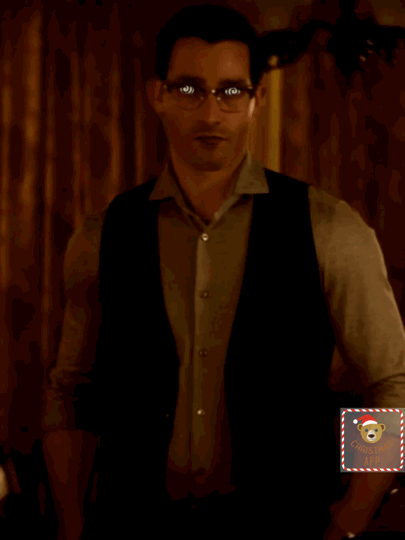
It is a untold sight of beauty brimming us in the heat of the sunlight over The Great City of Metropolis The home of The Man Of Steel the city is blinded with light.
A giant billboard almost the same height of The Daily Planet buildings globe a screen is activating for the first time showcasing a ad for the next Presidential campaign.
A black screen appears quickly light stirs in the back a spot light exposes him in mid way of the scene droning about whatever I scripted for him.
The video is captivating the citizens of this fair city especially piquing the interest of one person in particular a Mr. Clark Kent who is on a mission.
Avoiding his current assignment Clark digs for his cellphone pressing a contact the cell phone rings calling a private number to whom a stranger answers.
“Mr. Kent, how can I help you? Yes I do Mr.
Allen. I can get you a meeting.” The stranger replies making another call and then texting the Clark details.
Mr. Kent smirks heading him to change his clothes, he packs his costume in a suitcase he dashes out catching a cab he is on a mission.
Clark steps into the building with an air of The House Of L confidence rising into him he is right to not trust the President Allen’s campaign plans.
Clark strolls onto the elevator alerting all go my AI system of his presence my faint ideas of what this meeting is about are now ended.
The camera moving in a odd array of moves
scanning his body entirely with a x-ray and interface gives me a blueprint copy of his body.
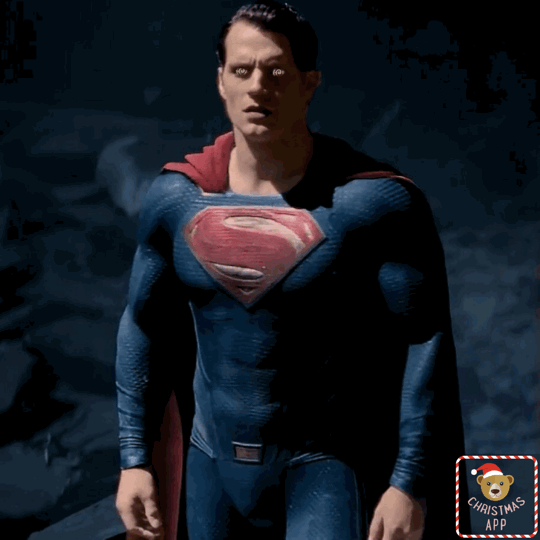
“My, my….what are you hiding from me Mr. Kent?” I say analyzing his non human scan of his physiology a body worthy of a gold medal.
“Oh Mr. Kent, you want to see me well I do say it’s honor to meet The Man of Steel himself.” I answer in to the speaker.
Clark looks up in a state of confusion he is caught off guard when the elevator takes advantage of shaft dropping in a free fall.
Clark no longer in the illusion of his secret identity he flew off the ground breaking into the roof but he is unable to he through.
He fell back onto the bottom cart the box goes haywire as Clark loses his mind at the scene the room goes black spiral paste on to the ceiling.
“You are right on time Clark focus onto the ceiling let it draw you in, relinquishing all of your control and forgetting everything else.”
“Your body stuck the floor of the cart a heat wave of psychological and physical pain is overtaking you with kryptonite inducing led”
“NNNNNNOOOOOOOO! I refuse to let you win this, I will never allow you to control me, I am The Man Of…I mean the Pussy of Steel”
“MWAHAHAHAHAHAHAHAHA”
“You vile flee ridden fiend you won’t get away this.”
“Even with your own eminent defeat you still defy me.”
“I won’t…..aaaaaaahhhhhh”
“You will kneel, you will bow and obey”
“Cat got your tongue”
“Activate manipulation row full throttle”
“Time to meet your maker”
“Your ultimate demise begins now”
The elevator implodes from inside forming a shield covering The Man Of Steel in a green cascade spinning in mid air exposing his body and mind to my brainwashing.
“Allow me if you will to construct the real a plus grade of truth for to envision who and what you are.”
“Your family hates, your friends hate you, the world fears you and view how I am the only who care about you.”
“I own you Superman, I am your maker, your creator and owner”
“You bound to me for your life you are not hero”
“Say it boi”
“No……….I”
“I Said Say It”
“I am not a hero….oooooohhhhhh….aaahhh”
“Oh God! I am your Master Lawrence “
“You can stand up now and greet your ole protege”
“Superboy”
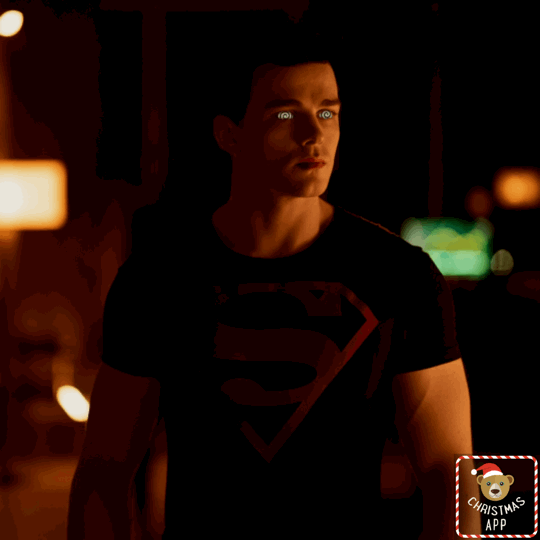
The end
23 notes
·
View notes
Link
7 notes
·
View notes
Text


Jeanne Manford (December 4, 1920 - January 8, 2013)
Born in Queens NY, Jeanne graduated from Queens College in 1964, and for 26 years she was a elementary school math teacher.
In 1966, Jeanne’s oldest son had died, leaving her son Morty (15 at the time) depressed. He asked to see a therapist, one therapist, eventually telling the Manford parents their son was gay. Filled with support for her son, and fear for losing him, Jeanne and Jules sent Morty to live with their family friend, and gay activist himself, Ethan Geto.
Throughout the 70s, would campaign for gay rights with her husband and son. In April of 1972, Jeanne sent the following to the New York Post:
I am proud of my son, Morty Manford, and the hard work he has been doing in urging homosexuals to accept their feelings and not let the bigots and sick people take advantage of them in the ways they have done in the past and are continuing to do.
In ‘73, she and her husband formed POG (Parents of Gays) which eventually formed more chapters and was changed to PFLAG (Parents and Families/Friends of Lesbians And Gays)
In 2012, Jeanne was awarded the Presidential Citizens Medal by then President Obama for her efforts with PFLAG and as an ally for gay rights. On April 26, 2014, the City of New York named the section of 171st Street between 33rd and 35th Avenues “Jeanne, Jules, Morty Manford PFLAG Way” in their honor.
Happy birthday to Jeanne Manford. Thank you for contributing to history, and our rights as gay men and women.
You can learn more about Jeanne through the following links:
#i love women#loving women#women#loving womyn#celebrating women#herstorical women#herstory#women in herstory#women in history#womyn#jewish women in herstory#jewish women in history#historic women#historical women
5 notes
·
View notes
Text
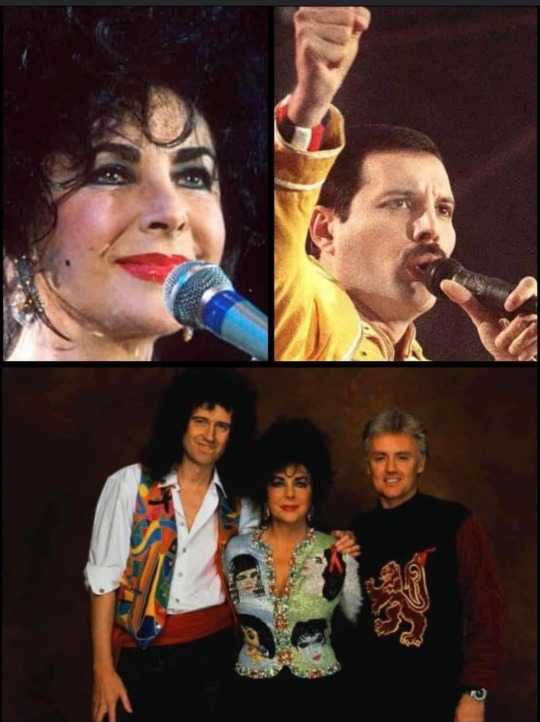
Remembering Elizabeth Taylor 🤍🕊
(27 February 1932 – 23 March 2011)
"We sadly mourn the passing of Elizabeth Taylor - a great actress, and a formidable campaigner for the removal of the stigma attached to HIV, along with her devotion to the alleviation of suffering in AIDS patients.
Elizabeth contributed an inspiring message to our tribute concert for Freddie - which marked the very beginning of the Mercury Phoenix Trust, which has been working to combat AIDS worldwide ever since.
Respects, and our sympathies to Elizabeth's family in this very hard time.
RIP Elizabeth Taylor."
Brian May and Roger Taylor’s Statement in 2011
Dame Elizabeth Rosemond Taylor DBE was a British-American actress. She was considered one of the last, if not the last, major star to have come out of the old Hollywood studio system. She fashioned a career that's covered more than six decades. She was known internationally for her beauty, especially for her violet eyes, with which she captured audiences early on in her youth and kept the world hooked on with since.
Elizabeth Taylor was one of the first celebrities to take part in HIV/AIDS activism. She co-founded the American Foundation for AIDS Research in 1985 and the Elizabeth Taylor AIDS Foundation in 1991. From the early 1990s until her death, she dedicated her time to philanthropy, for which she received several accolades, including the Presidential Citizens Medal, the Legion of Honour, the Jean Hersholt Humanitarian Award and a Life Achievement Award from the American Film Institute. The American Film Institute named her seventh on their list of the "Greatest American Screen Legends.”
She died of Congestive Heart Failure at the age of 79 on March 23, 2011, at Cedars-Sinai Medical Center in Los Angeles
Elizabeth Taylor took the stage during ‘The Freddie Mercury Tribute Concert’ in London’s Wembley stadium on the 20th of April 1992 and silenced the crowd with a powerful speech which included:
“𝐈 𝐡𝐚𝐯𝐞 𝐬𝐨𝐦𝐞𝐭𝐡𝐢𝐧𝐠 𝐭𝐨 𝐬𝐚𝐲. 𝐖𝐞 𝐚𝐫𝐞 𝐡𝐞𝐫𝐞 𝐭𝐨 𝐜𝐞𝐥𝐞𝐛𝐫𝐚𝐭𝐞 𝐭𝐡𝐞 𝐥𝐢𝐟𝐞 𝐨𝐟 𝐅𝐫𝐞𝐝𝐝𝐢𝐞 𝐌𝐞𝐫𝐜𝐮𝐫𝐲, 𝐚𝐧 𝐞𝐱𝐭𝐫𝐚𝐨𝐫𝐝𝐢𝐧𝐚𝐫𝐲 𝐫𝐨𝐜𝐤 𝐬𝐭𝐚𝐫 𝐰𝐡𝐨 𝐫𝐮𝐬𝐡𝐞𝐝 𝐚𝐜𝐫𝐨𝐬𝐬 𝐨𝐮𝐫 𝐜𝐮𝐥𝐭𝐮𝐫𝐚𝐥 𝐥𝐚𝐧𝐝𝐬𝐜𝐚𝐩𝐞 𝐥𝐢𝐤𝐞 𝐚 𝐜𝐨𝐦𝐞𝐭 𝐬𝐡𝐨𝐨𝐭𝐢𝐧𝐠 𝐚𝐜𝐫𝐨𝐬𝐬 𝐭𝐡𝐞 𝐬𝐤𝐲. 𝐖𝐞 𝐚𝐫𝐞 𝐚𝐥𝐬𝐨 𝐡𝐞𝐫𝐞 𝐭𝐨 𝐭𝐞𝐥𝐥 𝐭𝐡𝐞 𝐰𝐡𝐨𝐥𝐞 𝐰𝐨𝐫𝐥𝐝 𝐭𝐡𝐚𝐭 𝐡𝐞, 𝐥𝐢𝐤𝐞 𝐨𝐭𝐡𝐞𝐫𝐬 𝐰𝐞 𝐡𝐚𝐯𝐞 𝐥𝐨𝐬𝐭 𝐭𝐨 𝐀𝐈𝐃𝐒, 𝐝𝐢𝐞𝐝 𝐛𝐞𝐟𝐨𝐫𝐞 𝐡𝐢𝐬 𝐭𝐢𝐦𝐞. 𝐓𝐡𝐞 𝐛𝐫𝐢𝐠𝐡𝐭 𝐥𝐢𝐠𝐡𝐭 𝐨𝐟 𝐡𝐢𝐬 𝐭𝐚𝐥𝐞𝐧𝐭 𝐞𝐱𝐡𝐢𝐥𝐚𝐫𝐚𝐭𝐞𝐬 𝐮𝐬 𝐞𝐯𝐞𝐧 𝐧𝐨𝐰 𝐭𝐡𝐚𝐭 𝐡𝐢𝐬 𝐥𝐢𝐟𝐞 𝐡𝐚𝐬 𝐛𝐞𝐞𝐧 𝐬𝐨 𝐜𝐫𝐮𝐞𝐥𝐥𝐲 𝐞𝐱𝐭𝐢𝐧𝐠𝐮𝐢𝐬𝐡𝐞𝐝. 𝐈𝐭 𝐧𝐞𝐞𝐝𝐧‘𝐭 𝐡𝐚𝐯𝐞 𝐡𝐚𝐩𝐩𝐞𝐧𝐞𝐝. 𝐈𝐭 𝐬𝐡𝐨𝐮𝐥𝐝𝐧‘𝐭 𝐡𝐚𝐯𝐞 𝐡𝐚𝐩𝐩𝐞𝐧𝐞𝐝. 𝐏𝐥𝐞𝐚𝐬𝐞 𝐥𝐞𝐭‘𝐬 𝐧𝐨𝐭 𝐥𝐞𝐭 𝐢𝐭 𝐡𝐚𝐩𝐩𝐞𝐧 𝐚𝐠𝐚𝐢𝐧 !
Here’s the clip 👉 https://youtu.be/pBo3gvVFpOE
1 note
·
View note
Text

Irene Amos Morgan Kirkaldy (April 9, 1917 - August 10, 2007) was a civil rights activist who won her 1946 SCOTUS case in Irene Morgan v. Commonwealth of Virginia, which declared interstate transport racial segregation to be unconstitutional, nearly a decade before the Montgomery Bus Boycott.
She was in Baltimore to Robert and Ethel Amos. She was raised as a Seventh-day Adventist along with her eight other siblings. She dropped out of high school to work and help her family during the Great Depression. She worked on the production line for B-26 Marauders at the Glenn L. Martin Aircraft Company in Baltimore. She married Sherwood Morgan and the couple had a son and a daughter.
She bought a $5 ticket and boarded a Greyhound bus to return home to Baltimore. She sat in the back of the bus, the spot designated for “colored” people. The driver came to her and the woman seated next to her with a baby in her arms and told them both to move for a white couple just boarding. The driver proceeded to the next town to have her arrested.
The officer gave her an arrest warrant and she tore it up in his face. She was arrested and charged with resisting arrest and violating Virginia’s Jim Crow transit laws. She pleaded guilty to the charge of resisting arrest and paid a $10 fine, but refused to plead guilty to violating “Jim Crow laws.” She appealed her conviction. The Virginia Supreme Court ruled her in violation of the law, she took her case to the SCOTUS.
They moved to New York City and her husband died. She married dry-cleaning business owner Stanley Kirkaldy. They owned and operated house cleaning and child-care businesses in Queens. She won a college scholarship from a radio contest and at the age of 68, she earned a BA in Communications from St. John’s University. At the age of 72, she received her MA in Urban Studies from Queens College.
She was honored by Gloucester City during its 350th anniversary and President Bill Clinton awarded her the Presidential Citizens Medal. She was inducted into the Maryland Women’s Hall of Fame.
She moved to Gloucester, Virginia in the last years of her life. #africanhistory365 #africanexcellence
0 notes